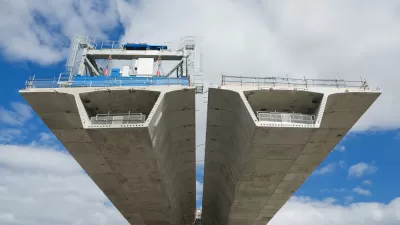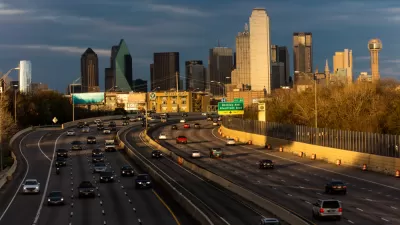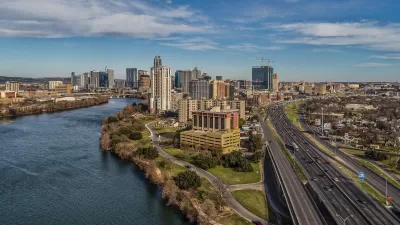Advocates at the local and the national level are voicing their concern over a proposal by the Arkansas State Highway and Transportation Department to widen the I-30 freeway in Downtown Little Rock.
Angie Schmitt checks in on the recently completed environmental study for the 30 Crossing project in Little Rock. According to Schmitt, the proposal for the project would spend $600 million to widen a partly elevated highway through the center of Little Rock from six lanes to ten lanes.
According to Schmitt, the Arkansas State Highway and Transportation Department "just completed a year-long environmental study for the project they call 30 Crossing. The agency’s 'preferred alternative' is the 10-lane highway widening, which it believes is the best way to 'relieve congestion, improve roadway safety' and address structural deficiencies in the road."
An article in the Democrat-Gazette, now mostly hidden behind the publication's paywall for archived articles, focuses on the consequences of the I-30 proposal—namely, that an existing route on the downtown streetcar system would be scrapped. Schmitt provides more detail on that particular consequence of the highway-widening plan:
"Multiple options were studied, and the state ended up favoring the version with the most highway widening. The road can’t be widened to 10 lanes without removing a portion of Little Rock’s streetcar, meaning the line would no longer serve two of its most popular destinations: the Clinton Presidential Library and the headquarters of the global charity Heifer International. Tearing up the streetcar would also foreclose the long-discussed possibility of extending the streetcar to the airport..."
Schmitt also surveys the local response to the study, including a post by Tim McKuin on the blog MoveArkansas, which quibbles with slippage in the numbers used to back up the argument in favor of the 30 Crossing proposal. An op-ed by Max Brantley for the Arkansas Times resorts to all caps in calling for the Arkansas DOT to "STOP This Outrageous Project." Leslie Newell Peacock reported for the same publication in a separate article about the growing public opposition to the project proposal.
FULL STORY: Arkansas Wants to Widen Highway, Eliminate Streetcar for “Safety”

Maui's Vacation Rental Debate Turns Ugly
Verbal attacks, misinformation campaigns and fistfights plague a high-stakes debate to convert thousands of vacation rentals into long-term housing.

Planetizen Federal Action Tracker
A weekly monitor of how Trump’s orders and actions are impacting planners and planning in America.

In Urban Planning, AI Prompting Could be the New Design Thinking
Creativity has long been key to great urban design. What if we see AI as our new creative partner?

King County Supportive Housing Program Offers Hope for Unhoused Residents
The county is taking a ‘Housing First’ approach that prioritizes getting people into housing, then offering wraparound supportive services.

Researchers Use AI to Get Clearer Picture of US Housing
Analysts are using artificial intelligence to supercharge their research by allowing them to comb through data faster. Though these AI tools can be error prone, they save time and housing researchers are optimistic about the future.

Making Shared Micromobility More Inclusive
Cities and shared mobility system operators can do more to include people with disabilities in planning and operations, per a new report.
Urban Design for Planners 1: Software Tools
This six-course series explores essential urban design concepts using open source software and equips planners with the tools they need to participate fully in the urban design process.
Planning for Universal Design
Learn the tools for implementing Universal Design in planning regulations.
planning NEXT
Appalachian Highlands Housing Partners
Mpact (founded as Rail~Volution)
City of Camden Redevelopment Agency
City of Astoria
City of Portland
City of Laramie





























